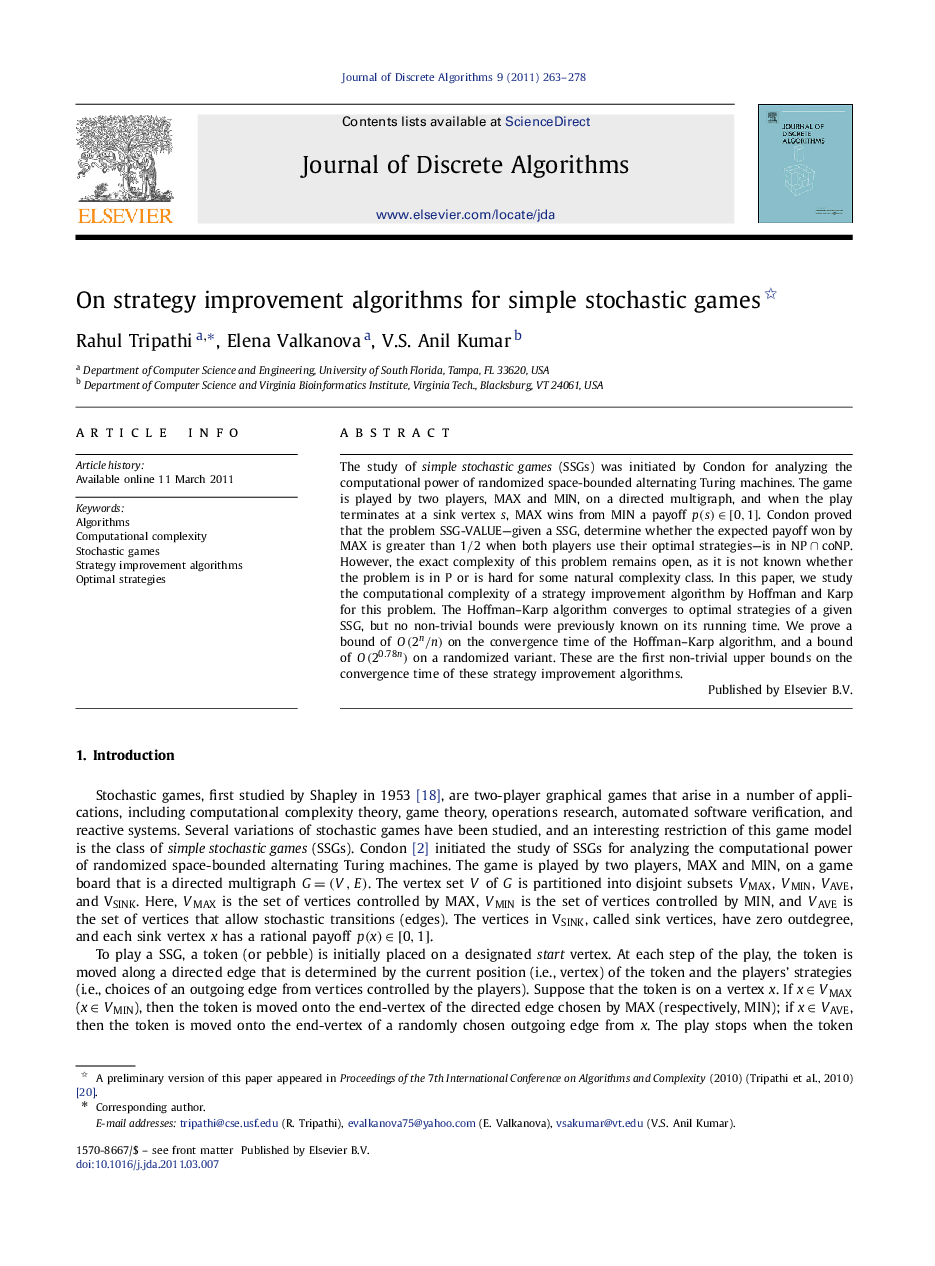| Article ID | Journal | Published Year | Pages | File Type |
|---|---|---|---|---|
| 431041 | Journal of Discrete Algorithms | 2011 | 16 Pages |
The study of simple stochastic games (SSGs) was initiated by Condon for analyzing the computational power of randomized space-bounded alternating Turing machines. The game is played by two players, MAX and MIN, on a directed multigraph, and when the play terminates at a sink vertex s , MAX wins from MIN a payoff p(s)∈[0,1]p(s)∈[0,1]. Condon proved that the problem SSG-VALUE—given a SSG, determine whether the expected payoff won by MAX is greater than 1/2 when both players use their optimal strategies—is in NP∩coNPNP∩coNP. However, the exact complexity of this problem remains open, as it is not known whether the problem is in P or is hard for some natural complexity class. In this paper, we study the computational complexity of a strategy improvement algorithm by Hoffman and Karp for this problem. The Hoffman–Karp algorithm converges to optimal strategies of a given SSG, but no non-trivial bounds were previously known on its running time. We prove a bound of O(n2/n)O(2n/n) on the convergence time of the Hoffman–Karp algorithm, and a bound of O(20.78n)O(20.78n) on a randomized variant. These are the first non-trivial upper bounds on the convergence time of these strategy improvement algorithms.
